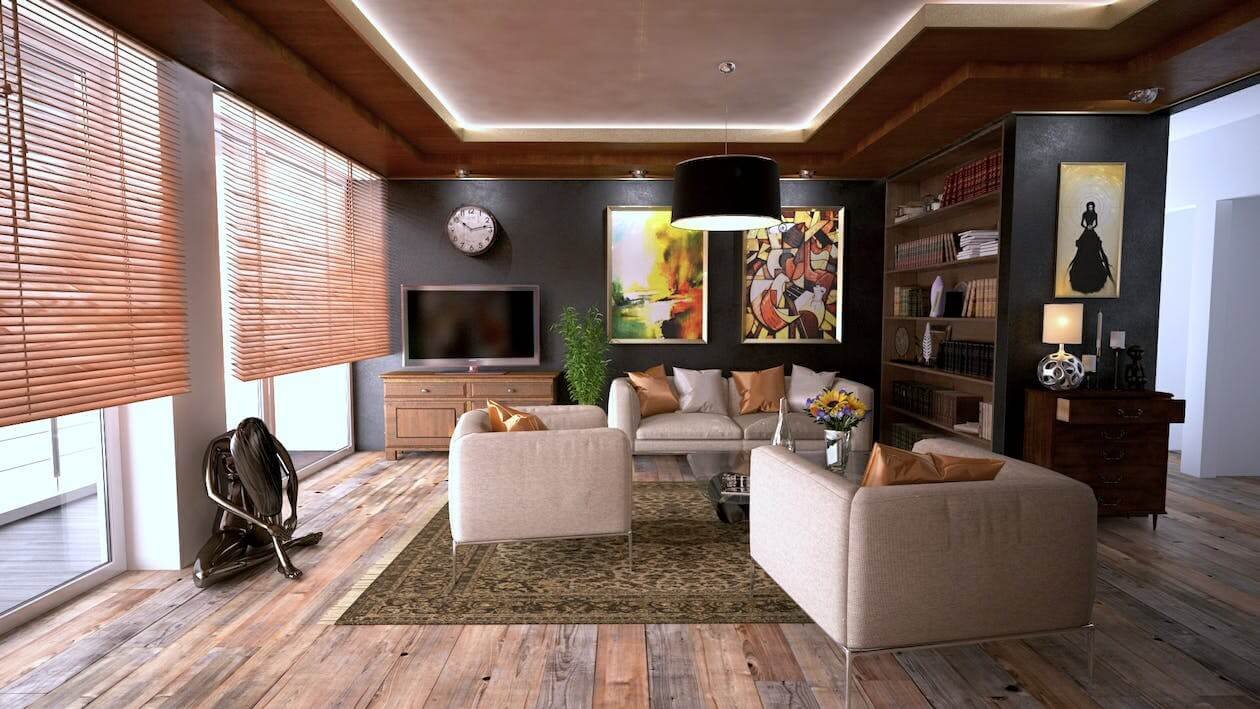The Best Way To Start An Airbnb Business 🏘️ in 6 Steps
Table of Contents
- Step 1: Understanding the Basics
- Step 2: Preparing Your Space
- Step 3: Setting Your Price
- Step 4: Listing Your Airbnb Property
- Step 5: Enlisting Help and Hosting Experiences
- Step 6: Managing Taxes and Legal Considerations
- Frequently Asked Questions
Step 1: Understanding the Basics
Starting an Airbnb business requires a solid understanding of the foundational aspects before venturing into the world of short-term rentals. To begin with, it's crucial to familiarize yourself with the rules and regulations governing short-term rentals in your area. These regulations can vary significantly depending on your location and can have a substantial impact on how you operate your Airbnb business.
Furthermore, take the time to consult with your landlord or homeowners' association to understand any restrictions or requirements for hosting guests in your property. Being well-versed in the legal framework surrounding short-term rentals can help prevent potential conflicts and ensure a smooth and compliant operation.
Moreover, it's essential to understand the financial implications of running an Airbnb business. Consider the initial investment required to prepare your property for hosting, as well as ongoing expenses such as maintenance, utilities, and cleaning services. Having a clear understanding of your financial commitments can help you make informed decisions and set realistic expectations for your Airbnb venture.
In summary, before diving into the world of Airbnb hosting, take the time to educate yourself about the legal, financial, and logistical considerations involved. By understanding the basics, you'll be better equipped to navigate the challenges and opportunities that come with running a successful Airbnb business.
Step 2: Preparing Your Space
Preparing your space for Airbnb guests is a critical step in ensuring a positive guest experience and maximizing your rental income. Start by assessing your property's strengths and weaknesses to identify areas for improvement. Consider investing in quality furnishings, comfortable bedding, and essential amenities to enhance guest comfort and satisfaction.
Personalization is key to creating a memorable experience for your guests. Consider adding decorative elements and thoughtful touches that reflect the local culture or your personal style. Whether it's a unique piece of artwork or a locally sourced welcome basket, these small details can make a big difference in how guests perceive your property.
Regular maintenance and cleanliness are essential for maintaining a positive guest experience. Develop a cleaning schedule to ensure that your property is always in top condition for incoming guests. Pay attention to details such as fresh linens, spotless bathrooms, and well-maintained common areas to leave a lasting impression on your guests.
In conclusion, preparing your space for Airbnb hosting requires careful attention to detail and a commitment to providing exceptional hospitality. By investing time and resources into creating a welcoming and comfortable environment, you can attract more guests and earn rave reviews for your property.
Step 3: Setting Your Price
Determining the right price for your Airbnb listing is crucial for attracting guests and maximizing your rental income. To set an appropriate price, start by researching similar listings in your area to understand market rates and pricing trends. Consider factors such as location, property type, and amenities when comparing your listing to others.
It's also essential to consider the unique features and amenities of your property when setting your nightly rate. Properties with desirable amenities such as a pool, hot tub, or scenic views may command higher prices than those without. Take inventory of your property's standout features and highlight them in your listing to justify your pricing.
Dynamic pricing strategies can help you adjust your rates based on demand and seasonal fluctuations. By monitoring market trends and guest booking patterns, you can optimize your pricing strategy to maximize occupancy and revenue throughout the year.
In summary, setting the right price for your Airbnb listing requires careful consideration of various factors. By conducting thorough research, highlighting your property's unique features, and implementing dynamic pricing strategies, you can attract more guests and achieve greater success as an Airbnb host.
Step 4: Listing Your Airbnb Property
Creating a compelling and informative listing is essential for attracting potential guests to your Airbnb property. Start by taking high-quality photos that showcase your space in its best light. Use natural light and capture different angles to highlight key features and amenities that set your property apart.
When writing your listing description, be sure to highlight what makes your property unique. Whether it's a charming historic home or a modern urban loft, emphasize the features and amenities that guests will appreciate. Use descriptive language to paint a vivid picture of what guests can expect during their stay.
Be transparent about any house rules, fees, or restrictions to set clear expectations for your guests. Provide detailed information about check-in procedures, parking arrangements, and nearby attractions to help guests plan their stay more effectively.
In conclusion, creating a compelling Airbnb listing requires attention to detail and a focus on showcasing your property's best features. By taking high-quality photos, writing descriptive listings, and providing clear information, you can attract more guests and increase your bookings.
Step 5: Enlisting Help and Hosting Experiences
Running a successful Airbnb business requires careful management of guest communication, property maintenance, and hospitality experiences. As your bookings increase, consider enlisting the help of co-hosts or hiring cleaning services to lighten the workload.
Enhance your guests' experience by offering unique hosting experiences such as guided tours, cooking classes, or local cultural events. Personalized touches and thoughtful gestures can leave a lasting impression on your guests and lead to positive reviews and repeat bookings.
Solicit guest feedback to identify areas for improvement and continuously strive to exceed guest expectations. By providing exceptional hospitality and memorable experiences, you can build a strong reputation as a host and attract more guests to your Airbnb property.
In summary, enlisting help and offering unique hosting experiences are essential steps in building a successful Airbnb business. By focusing on guest satisfaction and continuously improving your hosting skills, you can create memorable experiences for your guests and achieve greater success as an Airbnb host.
Step 6: Managing Taxes and Legal Considerations
Operating an Airbnb business comes with tax and legal implications that every host should be aware of. Keep detailed records of your income and expenses to facilitate tax reporting and compliance. Consult with a tax professional to understand your tax obligations and identify potential deductions that can help minimize your tax liability.
Stay informed about changes in local regulations and ordinances governing short-term rentals. Ensure that you comply with zoning laws, building codes, and licensing requirements applicable to your area. Consider obtaining insurance coverage to protect your property and business from unforeseen events or liabilities.
Additionally, consider forming a legal entity such as an LLC to protect your personal assets and limit your liability as a business owner. Establish clear rental agreements and house rules to outline guest responsibilities and protect your property from damage or misuse.
In conclusion, managing taxes and legal considerations is an essential aspect of running a successful Airbnb business. By staying informed, seeking professional advice, and implementing best practices, you can minimize risks and ensure compliance with applicable laws and regulations.
Frequently Asked Questions
Q: How much can I earn from an Airbnb business?
A: Earning potential varies based on factors such as location, property type, and occupancy rates. On average, hosts in the United States earn over $13,800 per year. However, this figure can fluctuate significantly based on various factors such as property size, amenities, and market demand.
Q: What are the tax implications of running an Airbnb business?
A: Operating an Airbnb business may classify you as a small-business owner, requiring a thorough understanding of tax obligations. Consult a tax professional to navigate reporting requirements and identify potential deductions for minimizing tax liability. Common deductible expenses for Airbnb hosts include property maintenance, utilities, cleaning services, and mortgage interest.
Q: How can I ensure a positive guest experience?
A: Prioritize exceptional hospitality by maintaining a clean and well-equipped space. Respond promptly to guest inquiries and concerns, offering personalized touches to enhance their stay. Solicit guest feedback for continuous improvement and aim to surpass guest expectations consistently. By providing exceptional service and memorable experiences, you can earn positive reviews and build a strong reputation as a host.


